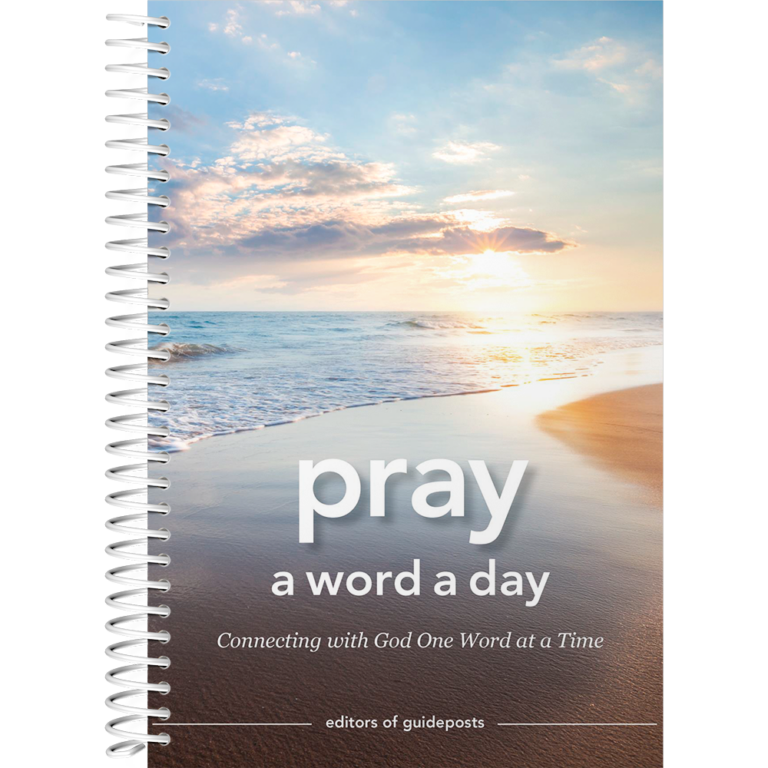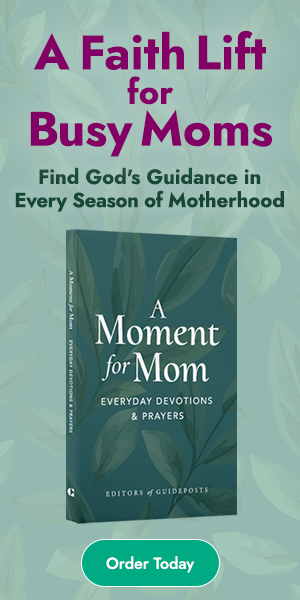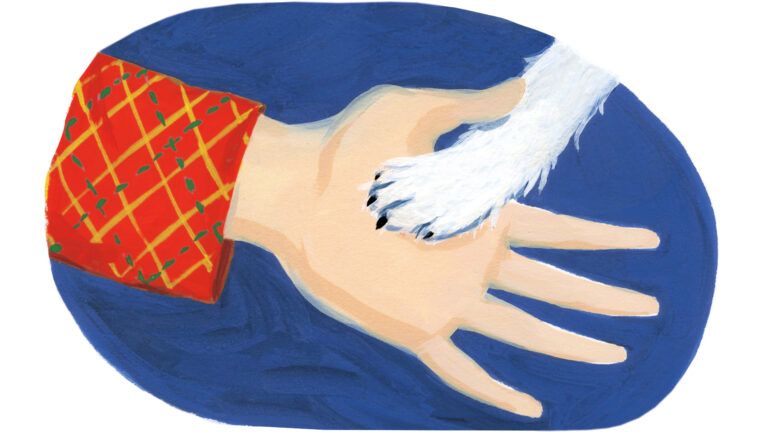It was a day of anguish. For months my mother had been ill; for weeks she had been suffering agony from the cancer that was killing her, and today was the day when she was returning to the hospital. I was preparing to leave the office to take her there when my executive editor called me for a conference.
“I’d like you to do an article on the subject of ‘When to Pray'” he said to me. “Why don’t you consider Paul’s exhortation to pray without ceasing? You might even try it for a day and see what it means to you.”
It was difficult to think of exploring an article while deeply concerned with something else, but this assignment was obviously fitting to the circumstances. If anything, it was too fitting; the events of this day could not be interpreted as proper examples of routine living. Still, the idea was challenging.
As I arranged last-minute details in my office, a fellow editor dropped in, and very casually and skillfully (I realized later) told me something quite funny. I laughed. And when it came to me that I was laughing, I said my first prayer—a prayer of gratitude for good humor, which can keep us all in balance, and for this friend who had come purposely to cheer.
Down on the street, I saw a father bawling out his son, who, in turn, was responding with squealing argument. I said a prayer for them that each should find understanding and respect. A newspaper headline yelled out at me about a teenage killer. I prayed for him, and for the two families. My taxicab driver complained about the summer heat. I prayed for him too.
In my mother’s apartment the nurse moved about silently, now laying out a dress, now gathering together the few essentials for the hospital suitcase.
Briefly, as I watched her, my appreciation for her care and vigilance was translated into prayer, and then my thoughts returned to Mother. It was not easy to present myself as calm and assured, to act as though this journey to the hospital were a good thing, that there the terrible pain would be softened. In my own mind I was not sure.
It had been two weeks since the specialist in charge of her case had gone on vacation; his substitute had not telephoned or visited since then. A faithful general practitioner had come daily, but still I worried for fear Mother was not receiving sufficient attention. She was unable to take any sedative stronger than aspirin, and her pain was constant and excruciating. Finally I had taken it upon myself to call the substituting specialist and suggest hospitalization. The doctor felt the idea had merit and said he would telephone the general practitioner about it, and would come to see Mother. A day later he had done neither, and so I made arrangements without him.
Father, guide me. Help me to have acted wisely.
Father, give my mother the strength for this short but difficult trip.
She had the strength and, in fact, seemed to benefit from the sun and air and change of locale. While the hospital made its inaugural tests and Mother was wheeled away for X rays, I went downstairs to brood over a cup of coffee. There I found myself in conversation with a woman who was obviously under great strain.
“My son,” she said to me, “was operated on two days ago. He’s fine, they say, but I worry so much and I stay here all day. He’s only 21, too young to have a hernia.”
I thought of my mother, who seemed young to me, at 60—at any age—to be riddled with cancer, and I became annoyed by this woman’s monologue. Then I remembered my pledge to pray unceasingly, and I addressed God again, this time for a young man’s return to robust activity, and for the easing of his mother’s deep distress.
By the time I had left the coffee shop, I actually recognized a kind of tranquility within myself, and thereby made a vital discovery about prayer. My sudden peace of mind was, I believe, directly related to being absorbed in the problems of another. “Dwell on your own peril and you may be reduced to gibbering panic,” Fulton Oursler once wrote in an article about finding presence of mind. “Think of others and you may well find yourself doing the precisely correct thing.” This is what prayer offers as well.
For the remainder of the afternoon Mother and I talked cheerfully together—and then, as the emergency painkiller she had taken at home lost its potency, the agony returned, vengefully. It was hours before she was quiet again. By then I had been called into the hall by a new surgeon. The X rays had revealed a desperate condition. The doctors told me that my mother could not live more than 24 hours without an operation, and there was little chance of her surviving that.
I do not know whether they were asking permission to operate or not. I simply looked at them. What other course of action could there be?
In the warmth and murkiness of the night, I sat beside my mother and held her left hand as she drowsed. Her other hand was strapped to a board while liquid strength flowed into her veins. I must pray, I told myself.
But I could not. Pray without ceasing? I couldn’t pray at all. It was simple to pray for cab drivers and ladies with vigorous sons, but pray for my mother’s life? I could not ask that much of him.
The minutes melded into a quarter-hour, then a half, and my mind seemed empty. Slowly, without rationalizing, without focusing my thoughts at all, I began to repeat the same inaudible words to her:
Love and contentment…love and contentment…
I don’t know where the words came from, but they were there to the exclusion of everything else. It was as though I wanted to swath my mother in love, to bring her utter comfort, and that by keeping her hand in mine I could transfuse the power of those silent words.
The night passed and early the next morning surgery was performed. Mother underwent it successfully, as I knew somehow she would.
That afternoon as I returned home to sleep, my prayers diminished in gratitude as a feeling of anger took their place—anger against the doctor who might have come and who might have foreseen the critical situation. I was in a white fury when I telephoned him. I castigated him for what I considered was his dereliction of duty, and when he replied with what I thought were lame excuses, I swore at him.
What had happened to my praying without ceasing? The past 24 hours had been challenging ones and I had failed to pass muster. I could pray in situations that did not touch me near, but I was not prepared for those that struck the raw nerve of emotion.
In retrospect, I recognized the value and importance of formal periods of prayer, be they in church, upon rising or going to bed, in specific quiet moments.
I believe now, however, that just as a man should not be a Sunday Christian only, neither should he restrict himself only to a prayer schedule. When Paul said Pray without ceasing he was, of course, saying that God should be foremost in man’s mind at all times, but more, he was offering man a practical instrument—prayer—for accomplishing this end. He was prescribing a conduct of life that would include all eventualities.
The athlete who does not train cannot expect victory. Similarly, a man who does not practice praying may expect to find his control weakened when he needs to call upon it.
“It is,” Alex Carrel said, “when prayer becomes a habit that it operates on the character.” Prayer and God are not sometime things.
“Love and contentment” was a prayer from deep within me. It came unconsciously when I thought myself empty. The oaths I flung at the doctor, however, represented a collapse of the prayer fabric because I did not care. Had I been prepared by a life of praying, had I learned the value of silence in which prayer is most effective, I believe I would not have sworn at that physician. I most certainly would have taken him to task as I saw the facts, but if I had had the resources from which to form prayers, both for him and for my own equanimity, I would not have allowed my argument with him to be dissipated in frenzy.
On a Sunday morning, after two weeks of numb struggle, Mother died. By then, for me, as I am sure it was already for her, the continuity of life had been affirmed. And one of the insights into living that her death had given me was that we come closest to God, who is with us always, in times of prayer. When we pray without ceasing, difficult as it is to achieve, we are with him always.
Download your FREE ebook, A Prayer for Every Need, by Dr. Norman Vincent Peale





